By Luke Rosiak,
Five governments spent vast resources undertaking a tax evasion probe. They came up empty—then, it seems, they decided to smear an innocent man.
In the Bahamas in early 2021, Sam Bankman-Fried was allegedly conducting a brazen, multi-billion dollar scheme. He virtue-signaled for liberal causes, was put on the cover of magazines, and—until things got really bad—seemed to stay off the authorities’ radar.
Around 800 miles east at the same time, a conservative activist named Peter Schiff was running his own bank in Puerto Rico. Schiff is a financier and prominent economist who regularly speaks publicly about how he thinks the government should be run: with fewer taxes and less regulation. The U.S. government teamed up with four other countries to undertake the “world’s largest tax evasion probe” against Schiff. Despite “a very significant investment by all the countries involved,” they found nothing.
Then they destroyed him anyway. Authorities leaked the existence of the investigation to the media, then cited the resulting negative publicity to take the bank from him, costing him more than $10 million.
The IRS’ top criminal enforcement official flew to Puerto Rico to hold a press conference where he gave the impression that the IRS was shutting down Schiff’s bank for facilitating tax evasion and money laundering—even though, if you were paying close enough attention, that was not the case.
Schiff’s Euro Pacific Bank (EPB) was actually being closed by a Puerto Rican oversight board that claimed that it was “critically insolvent.” In other words, the board claimed the bank might not be able to return its customers’ money if there was a run on accounts—which is what happened in the case of Bankman-Fried. But Schiff’s bank catered to ultra-conservative clients who prioritized keeping their money over earning interest. The bank didn’t lend out its deposits, and profits came mostly from charging fees for transactions. EPB kept its depositors’ money on hand, making it perhaps the most run-proof bank in the world.
The Puerto Rican regulator later acknowledged EPB had more than enough cash to cover all of its deposits. Nonetheless, Puerto Rico put it into receivership to “liquidate.” It said Schiff couldn’t be permitted to own it because of “negative press”: articles based on law enforcement officials leaking the existence of the investigation which ultimately found nothing. A year later, the receiver has not returned any of the deposits, amounting to more than $65 million, to the bank’s thousands of customers.
Schiff had a track record of being right on economic issues. He warned early on that cryptocurrency was—as Bankman-Fried demonstrated—bad news. NPR heralded him for predicting the economic collapse of 2008.
He also had a fear that the government couldn’t always be trusted to behave ethically. And with every twist in the saga, he was seemingly more correct about that, too.
***
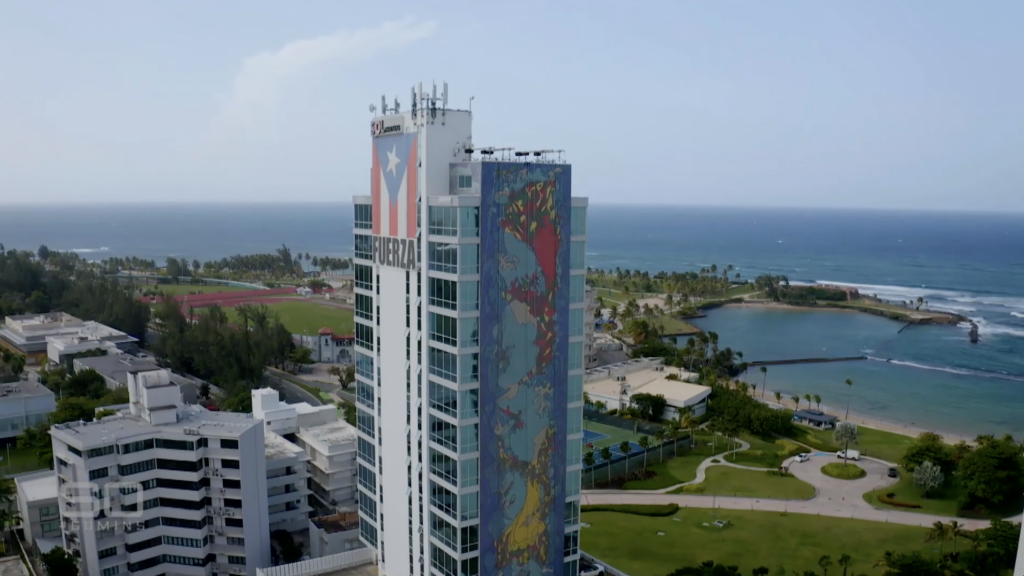
Euro Pacific Bank’s former headquarters in Puerto Rico. Screenshot from 60 Minutes Australia
In 2018, Schiff did something apt to cause panic inside the IRS: He went on the Joe Rogan Experience, the largest podcast in the country, and encouraged people to move to Puerto Rico. It’s a U.S. territory with great weather and beautiful women, he said. And—perhaps most importantly—the U.S. tax code exempts its residents from the federal income tax.
“I live in Puerto Rico. And thanks to my appearance on your show, a lot of other people now live there, too,” he said in a subsequent appearance. “I’ve just got to tell you how many people I run into and they say, ‘Peter, you know, I moved here because of you.’ Really, how’d you hear about it? ‘Oh, Joe Rogan.’” Each one of those transplants was availing themselves of a provision set up by the U.S. itself, but they also represented dollars to which the IRS was no longer entitled.
The same year, the governments of the U.S., Australia, Britain, Canada, and the Netherlands teamed up to create the “Joint Chiefs of Global Tax Enforcement,” or the J5, mirroring the “Five Eyes” program of the intelligence community. J5 was born out of embarrassment over a scandal known as the Panama Papers, in which hacked emails from a law firm in that Latin American country illustrated how wealthy westerners, including then-British Prime Minister David Cameron, had benefited from stashing money in offshore locations.
Authorities couldn’t seem to differentiate between an economist’s philosophical and political beliefs that taxes should be minimal and a willingness to commit crime. And so a prominent Fox News guest became the subject of a sprawling criminal probe.
Though a massive web of crypto tax evasion was rocking the global financial sector during the same time period, J5 appeared to do little for two years. Instead, in 2020, it took its first major action: setting its sights on Schiff in what it called an “unprecedented” “global day of action” that showed that “the J5 are closing in.”
But this seemed like less the result of expert sleuthing than the kind of lead that might turn up from a Google search for people who don’t like taxes. Schiff uses a megaphone to voice his criticism of the tax code. His father was a famous tax protester who died in prison for refusing to pay. Schiff routinely does media appearances where he takes a libertarian’s view of measures like the PATRIOT Act, a component of which involves the government more closely tracking people’s bank accounts.
Schiff incorporated Euro Pacific Bank (EPB) in Puerto Rico in 2017. He said it was based there because that’s where he lived, and that it catered to small businesses who did business in multiple countries and needed currency exchanged, as well as people who were attracted to the fact that it was marketed as a “100% reserve” bank, where all the money would be safely stored and not put into risky loans.
Though it was an off-shore bank holding money for people from other countries (it was not permitted to have Puerto Rican customers under its license, and had no other U.S. customers), Schiff said it had extreme compliance measures to ensure that people weren’t using the bank for illicit purposes. It refused to do business with people whose money was made in arenas Schiff viewed as shady, such as cryptocurrency or gambling, and rejected 75% of applicants because they did not satisfy the bank’s compliance officers, he said.
“We were doing it by the books. Even though I disagree with the laws, I’m not gonna break them. I’m not an idiot. If I was going to break the laws, I’d keep quiet about it,” Schiff told The Daily Wire.
He said authorities couldn’t seem to differentiate between an economist’s philosophical and political beliefs that taxes should be minimal and a willingness to commit crime. And so a prominent Fox News guest became the subject of a sprawling criminal probe.
“I think they targeted me because of who I am,” he said.
In January 2020, two IRS agents visited Schiff’s home on the island holding a summons from a grand jury based in Sacramento, California. The letter said “we request that you not disclose the fact that you have been served with the subpoena” because it could “seriously hamper the investigation.”
U.S. officials are also barred from disclosing information about grand jury proceedings, part of a process designed to protect people who may not wind up being charged, much less convicted, of anything. But journalists soon knew of the secret document. Reports surfaced citing authorities who revealed a massive investigation into a bank that, in one television program’s words, posed a “grave organized crime threat to the nation that must be confronted at any cost.”
Just as five national governments worked together on the probe, four news outlets did, too. They included The New York Times and three Australian outlets: The Sydney Morning Herald, The Age, and Australia’s 60 Minutes, a television program with the same name and style as the U.S. show. The media pieces, which ran in coordinated fashion in October 2020, amounted to breathless cheerleading for a government task force that, so far, hadn’t seemed to show any results.
The head of Australia’s criminal tax enforcement, Will Day, sat for an interview with Australia’s 60 Minutes, whose segment had the feel of serving up Schiff’s head on a platter as part of an over-the-top marketing piece for Day and the J5, which it called “a secret alliance of tax cops.” 60 Minutes Australia closed by saying, “It may be months before we find out how many other Australians are stashing their dirty money in Euro Pacific Bank, but Will Day says the investigation is a potent reminder to anyone thinking about dodging tax… [he’s] coming for them.”
60 Minutes Australia’s case that “the money trail shows us the secret tactics used by super-wealthy Australians to dodge tax and leads to the man at the center of it all, the face of the bank, Peter Schiff” was seemingly based on only two things: Schiff’s politics and the J5’s word. Schiff is known “thanks to his controversial views about the economy and taxes,” it said. And his bank “is at the center of the biggest tax evasion investigation in the world.”
When Schiff, who sat for an interview with 60 Minutes Australia, denied that his bank did anything wrong, the journalist told him “but you do know the IRS visited you this year, surely that was an indicator?” The journalist revealed that he knew of the government subpoena, and after Schiff replied that the government ordered him not to discuss it, the program played dramatic music and said “Schiff is really lost for answers.”
Judge Ian McNeil Jackman—the brother of actor Hugh Jackman—wrote in a defamation case that “Whether Mr Schiff has expressed political views antipathetic to taxation does not support an assertion that he in fact endorses, permits and condones the illegal avoidance of tax in practice.”
While luring U.S. citizens to Puerto Rico might have rankled the IRS, Australian officials may have had their own motive to want publicity. The month before, a major bill that would grant the government new powers for a “Financial Accountability Regime” had been introduced in Parliament. It had failed the prior year, and it needed a groundswell of public concern about financial fraudsters to pass. 60 Minutes said its segment “highlights a major flaw in Australia’s anti-money laundering regime” and that “the government must pass new laws.”
A reasonable person might rightfully be suspicious of a small bank that holds the money of individuals from other countries in a low-tax jurisdiction. It seems like a classic location where tax evasion and money laundering could occur. Yet, despite five governments and four news outlets investigating, the stories didn’t provide a single example of a customer using the bank for tax evasion or money laundering, much less the bank’s complicity.
Of the names of customers that 60 Minutes invoked, there was no indication they used the bank for wrongdoing—though the media didn’t present it that way.
“According to official sources, this man, Darby Angel, started an account with Euro Pacific Bank… he’s also a convicted drug trafficker,” the program said. In reality, Angel had a drug conviction 18 years earlier. The criminal record was so old that it was sealed by the Australian government and wouldn’t come up in any background check. On top of that, he never used his EPB account at all, and EPB had closed it years prior, according to an independent audit conducted by DLA Piper at EPB’s request.
Another EPB customer was Simon Anquetil, an executive of a payroll company who had no criminal record when he opened an account in 2015, but years later was charged with and pleaded guilty to major tax crimes in Australia. DLA Piper said those crimes had nothing to do with the bank. In 2016, EPB rejected an application from the company that committed the fraud and blocked five wire transfers associated with it; in February 2017, before he was charged, it disbursed money from his account to the Australian government; and in March 2020, it closed his account, the independent report found. A third customer name was a person who in 2013 was arrested but never charged with a crime.
Even so, after the media publicized the J5 investigation, the damage was done. In the months afterward, half of Euro Pacific’s customers fled, as did key business partners who cited “reputational risk.” Even Schiff’s personal bank account was shut down.
The day after the media pieces ran, Puerto Rico’s Office of the Commissioner of Financial Institutions (OCIF) began an audit. The next year, it issued a “consent order” saying that the bank did not have enough capital, and gave it 30 days to come up with a plan. Though Schiff disagreed that ratios of extra cash designed for banks that loaned out their money made sense for a 100% reserve bank, he said he would have happily put some more in. But he became convinced that the publicity stemming from the leaked criminal probe meant that the bank had a shadow over it as long as he was in charge, and he resigned himself to selling it.
On November 10, 2021, Schiff met with OCIF’s commissioner, a young lawyer named Natalia Zequeira, alongside executives from a precious metals trading firm called Qenta, and laid out a deal to sell the bank to Qenta for about $5 million in gold and cash, plus Schiff getting a 4% stake in Qenta. A plan sent by Euro Pacific to OCIF said that Qenta was a key part of its capital plan. Schiff said Zequiera was supportive of the sale and that he asked if he should put in extra money in the meantime to address the capital issue, but that Zequira said there was no need since the sale would result in an infusion of capital. The only thing Euro Pacific Bank needed to do, she said, was wait for OCIF to approve the sale.
Seven months later, on the morning of June 30, 2022, Schiff received an email from New York Times reporter Matt Goldstein asking for comment because “the J5 has said it is holding a press conference today to announce an action stemming from its Project Atlantis investigation which will include the suspending of operation for a Puerto Rico bank. It’s believed that this action is being taken against Euro Pacific Bank.” Schiff forwarded it to the bank’s lawyer, who said that was impossible.
One hour before the 2 p.m. press conference, OCIF sent EPB a letter, saying it was critically insolvent and was being turned over to a “receiver,” a Puerto Rican attorney. It also blocked the sale to Qenta, saying OCIF had just learned that the deal would include a stock component which would give Schiff a 4% share, which was a problem “in light of a number of negative press articles at the international level about the sole shareholder of Euro Pacific.”
The press conference seemed like a full-court press by the IRS to give the impression that its signature effort, Operation Atlantis, was a success instead of an embarrassing failure. IRS Chief of Criminal Investigations Jim Lee–a top official at the agency overseeing thousands of agents–flew to Puerto Rico and took the podium. His Australian and British counterparts joined virtually.
“In January of 2020, each of the J5 countries participated in a global coordinated day of action to put a stop to the suspected facilitation of offshore tax evasion and money laundering by a suspected bank in Puerto Rico,” Lee said. “This day of action included intelligence gathering, information gathering, search warrants, interviews, production orders, and subpoenas being issued around the globe. The operation from the J5 was dubbed Operation Atlantis, and the bank was Euro Pacific Bank.”
“This action really touches on a massive undertaking by many partners to secure the financial system, shut down fraudulent entities,” he added.
But it soon became clear that the shutdown actually had nothing to do with crimes. “Was EUP helping its clients commit money laundering and tax evasion?” a reporter asked.
“That is a conclusion that has not been made,” Zequeira said. “The action is not based on claims of money laundering or other financial crimes.”
A reporter asked Lee to address the question, seemingly wondering what he was doing there. Lee acknowledged that OCIF “independently made the decision” and “we did not work this investigation together in a traditional sense.” He then immediately implied otherwise, saying “The fact that I’m standing here today along with two of my international chiefs on the screen, standing next to the OCIF Commissioner here, should suggest that our partnership and collaboration is incredibly strong. The fact that we are partnering and collaborating internationally makes the world a much smaller place for people to use banks to help shield or facilitate tax or other financial crime.”
A reporter asked: “Is Peter Schiff being investigated?”
Despite previously saying that Euro Pacific was being investigated, Lee said, “I’m not at liberty to disclose who’s being investigated.”
The innuendo had its intended effect. Headlines read: “Peter Schiff’s Bank Closed Over Alleged Tax Evasion.” “IRS helps shut down bank for tax evasion, money laundering.” “Puerto Rico bank suspended in tax evasion probe.”
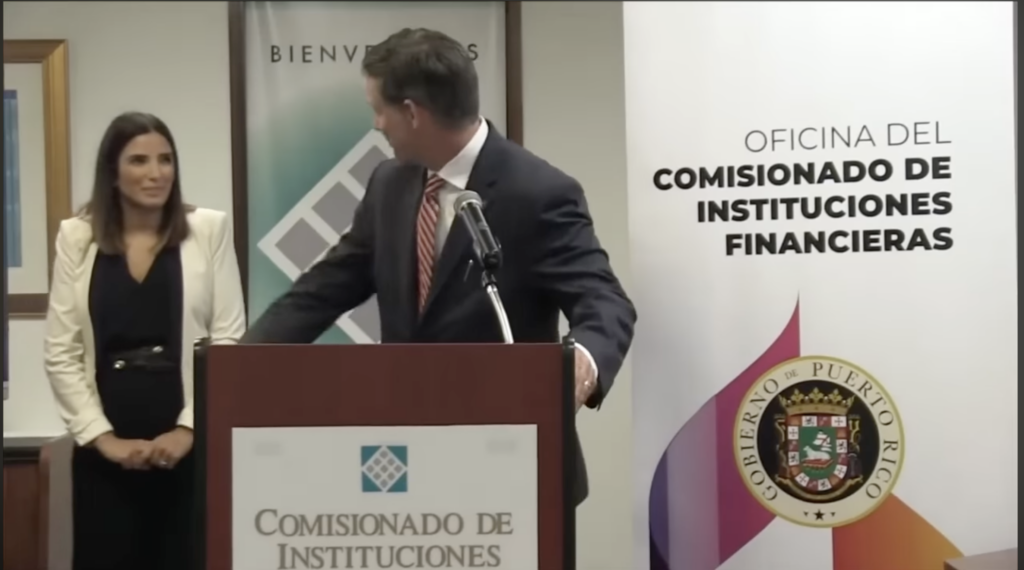
IRS Chief Jim Lee looks to OCIF Commissioner Natalia Zequeira at the June 2022 press conference.
***
If the bank wasn’t being shuttered for breaking the law, why was it being closed? Zequeira said at the press conference that it was because “OCIF determined today that the institution is critically insolvent.”
But the liquidation plan signed by Zequeira a few weeks later on August 8, 2022, acknowledged that “As reviewed by the Trustee, as of June 30, 2022… the Net Cash Available, including proprietary precious metals to be monetized, is $68,109,302 USD. As of the same date, clients deposits totaled the amount of $66,747,758. Therefore, as of June 30, 2022, Euro Pacific had an excess cash position to cover all deposits.” In other words, Schiff’s bank was solvent–far more so than the typical bank.
The letter also said that Euro Pacific had been operating without a license. But documents show that it submitted an application for renewal and paid the fee in January 2022. Schiff said despite the bank being in constant contact with OCIF, no one from OCIF ever told it that it had denied the application—even as it was preparing for Qenta to purchase the bank, which would include its license.
Though OCIF said it blocked Schiff from selling to Qenta because Schiff would own 4% of the company, documents reviewed by The Daily Wire show that both companies prominently disclosed the stake at the top of a plan submitted to the agency, and that Zequiera replied that her agency had “no comments” on the plan. If she had flagged it as an issue, the deal could have simply been restructured.
Zequiera did not respond to questions from The Daily Wire and denied a public records request for emails between her and the IRS.
“You either come with an indictment or you shut your mouth,” Schiff’s brother said. “Because otherwise the government can destroy anyone they want.”
Lee said at the press conference that there were more than 100 open civil and criminal investigations related to EUP customers around the world. In the year since, only two arrests—unnamed men arrested in England—have been publicly reported.
Prior to the press conference, Schiff had filed a defamation suit in Australian federal court against 60 Minutes Australia, and in September 2022, he won. The media outlet, in its defense, leaned heavily on Schiff’s political opinions as evidence that he was a criminal. But Judge Ian McNeil Jackman—the brother of actor Hugh Jackman—wrote that “Whether Mr Schiff has expressed political views antipathetic to taxation does not support an assertion that he in fact endorses, permits and condones the illegal avoidance of tax in practice.”
“The particulars do not identify a single instance in which a customer of the Bank actually used his or her EuroPacific account to engage in tax evasion or tax fraud, let alone to Mr Schiff’s knowledge,” he wrote in April 2023, as the suit proceeded to the damages phase. In its defense, 60 Minutes asserted that one unknown person had been arrested in the Netherlands on unknown charges.
After blocking Schiff from selling the bank to Qenta, the trustee allowed Qenta to buy EPB’s assets out of receivership for pennies on the dollar. But the trustee, Wigberto Lugo Mender, has repeatedly postponed the return of customers’ money—more than $65 million–even while collecting fees that eat into the bank’s reserves. Lugo Mender did not return a request for comment.
One of the attorneys who represented Schiff before OCIF was Lanny Davis, the Democrat powerhouse who previously represented Bill Clinton.
“Leaking grand jury subpoenas is a criminal violation,” he said. “I know that from the Kenneth Starr and Bill Clinton days. If you whisper in the ear of a reporter, ‘Hey, there’s a grand jury subpoena,’ that’s a crime.”
He said that authorities leaking the existence of an investigation, coming up empty, then citing publicity based on their leaks to punish the subject is a “circular, self-fulfilling prophecy.” The Puerto Rico regulator “allowed innuendo without facts to imply guilt by the bank and Mr. Schiff personally, when no such guilt was even close to being proven. Indeed, events have strongly suggested innocence,” he told The Daily Wire.
Davis said Lee, the IRS chief, should be investigated by Congress, the inspector general, and the Department of Justice.
“The IRS agent should at the very least be suspended pending a complete investigation and maybe fired,” Davis said.
Investigators “have no role whatsoever in the public arena under federal regulations and due process rules,” he added. “If they choose to speak out publicly, they better have authority from the IRS Commissioner himself and the attorney general. If they do not, they’re liable for wrongdoing and potential damages to the individual or company whose rights they have violated.”
Malcolm Segal, a California lawyer who represented the bank in its dealings with the California grand jury, said prosecutors refused to explain why the Sacramento U.S. Attorney’s office had any authority over a Puerto Rico-based bank that had no customers or vendors in Sacramento.
“That in itself is somewhat unusual in federal law enforcement,” he said. “The grand jury, like the court, is expected to have some basis for venue.”
He said the subpoena requested all bank records of all customers, along with all compliance records, and it wasn’t surprising to him that the bank was not ultimately charged because “having reviewed all of the records supplied to the IRS and the U.S. Attorney during a period of over a year, I didn’t see a single instance where the bank wasn’t in full compliance,” he told The Daily Wire.
But he was troubled by the fact that IRS and foreign agents appeared at a Puerto Rico press conference to take credit for closing a bank despite their investigation finding nothing.
“I was a federal and state prosecutor for 13 years and I don’t think I’ve ever seen anything like that,” he said.
“The regulator is permitted to say why they closed the bank, but no one else who participated from law enforcement could have, within the requirements of [the Rules of Criminal Procedure rule] 6E, disclosed the existence of an investigation which utilized a grand jury,” he said. “Anyone who intentionally discloses may be considered to have obstructed justice.”
The IRS declined to respond to questions from The Daily Wire including how much Operation Atlantis cost and what bank customers, if any, were ultimately charged or convicted of crimes. It also did not say whether any investigation was undertaken into who leaked the investigation to the media, or why Lee traveled to Puerto Rico and discussed the crimes authorities “believed” EPB to have committed despite having no evidence to charge him.
Three months after the press conference, the bank’s president Mark Anderson, who ran the bank for Schiff, died of a heart attack at the age of 64.
To this day, the J5 prominently advertises its “globally coordinated day of action” into the bank “whose products and services are believed to be facilitating money laundering and tax evasion for customers across the globe” as a “success.” In fact, it is the only example of an enforcement action on its list of “Tax Enforcement Successes.”
Schiff’s brother, Andrew, said that tax authorities wanted revenge for their father, but did no favors for their cause by bungling an investigation that they endlessly hyped up.
“You either come with an indictment or you shut your mouth,” he said. “Because otherwise the government can destroy anyone they want.”
Source: https://www.dailywire.com
Disclaimer: We at Prepare for Change (PFC) bring you information that is not offered by the mainstream news, and therefore may seem controversial. The opinions, views, statements, and/or information we present are not necessarily promoted, endorsed, espoused, or agreed to by Prepare for Change, its leadership Council, members, those who work with PFC, or those who read its content. However, they are hopefully provocative. Please use discernment! Use logical thinking, your own intuition and your own connection with Source, Spirit and Natural Laws to help you determine what is true and what is not. By sharing information and seeding dialogue, it is our goal to raise consciousness and awareness of higher truths to free us from enslavement of the matrix in this material realm.
 EN
EN FR
FR

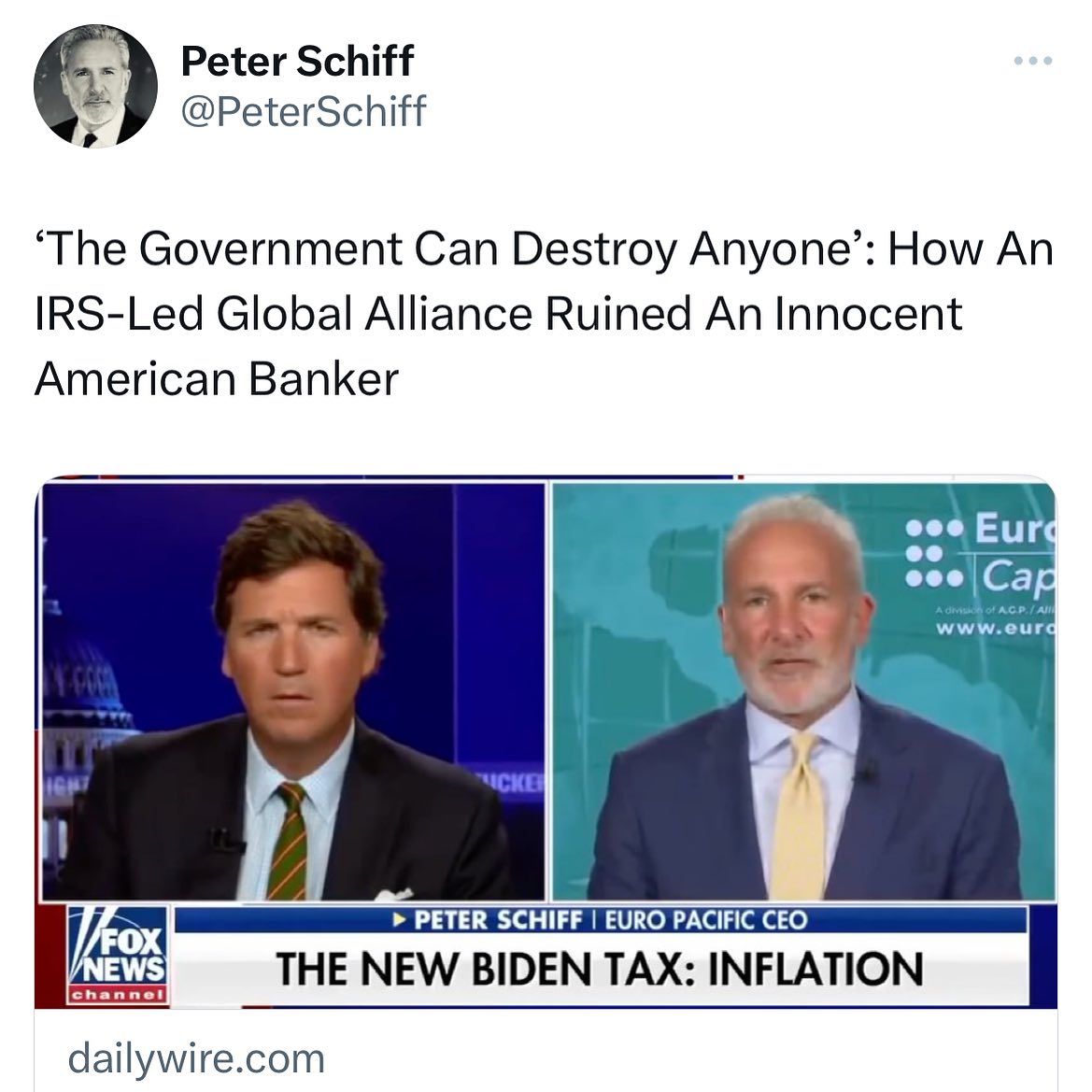

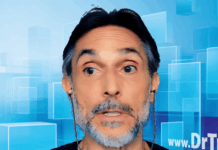
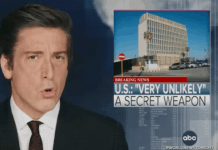
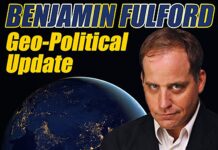

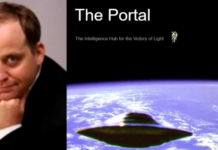
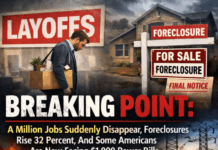





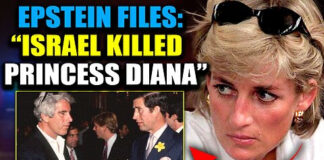












Here's one recently written blog-post: http://charleshughsmith.blogspot.com/2023/08/neither-comply-nor-resist.html
— Elfriede Lentner, https://www.deviantart.com/puretassel
The Deep State doesn't want a bank that is more viable than their own Federal Reserve, which is in permanent insolvency. These Banksters are just part of the criminal syndicate that make up the Khazarian Mafia. They are above the law, as they MAKE the law up as they go along.
"RULES FOR THEE, BUT NOT FOR ME!"